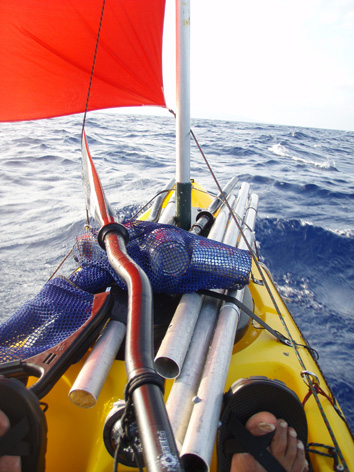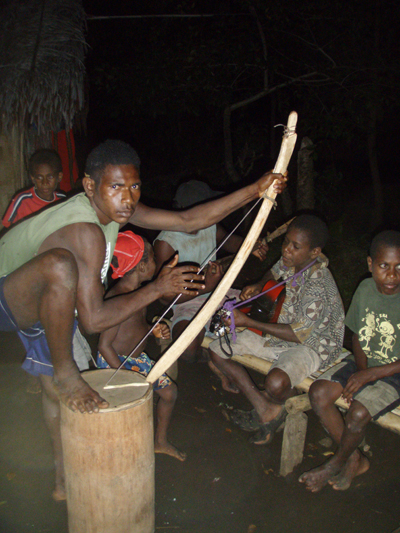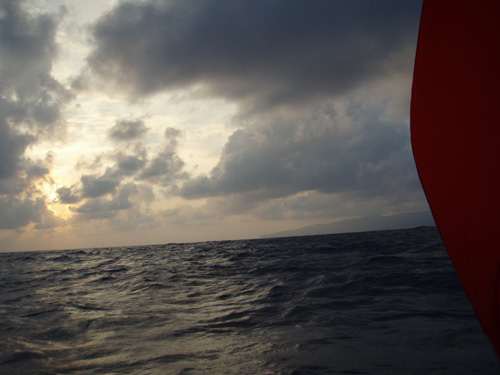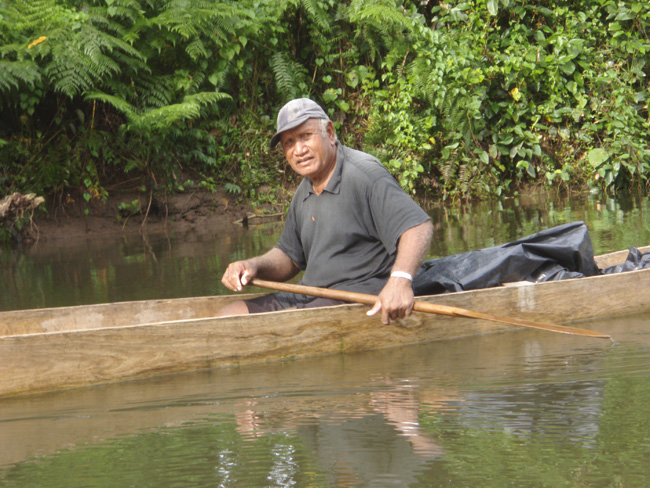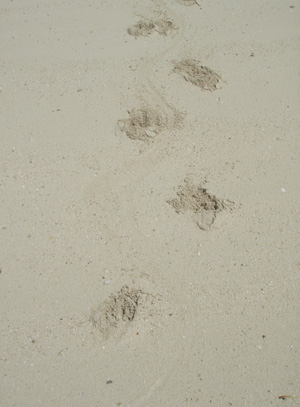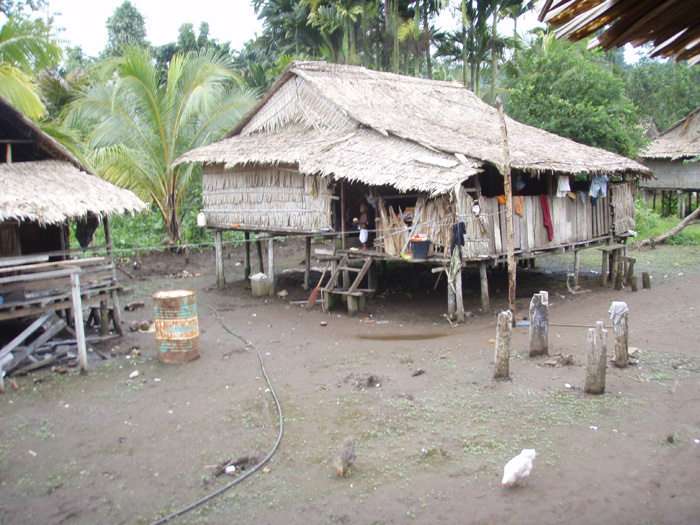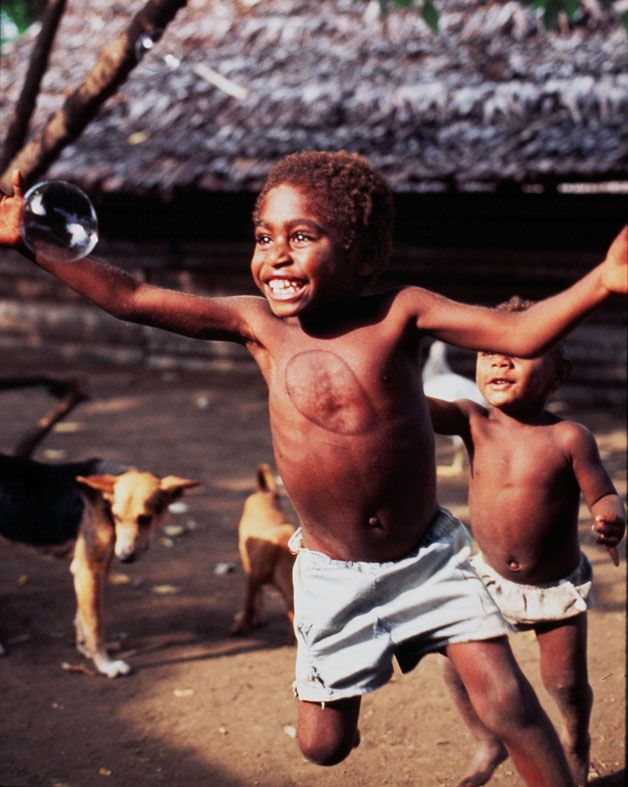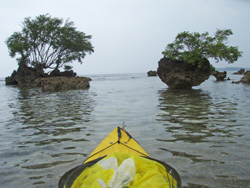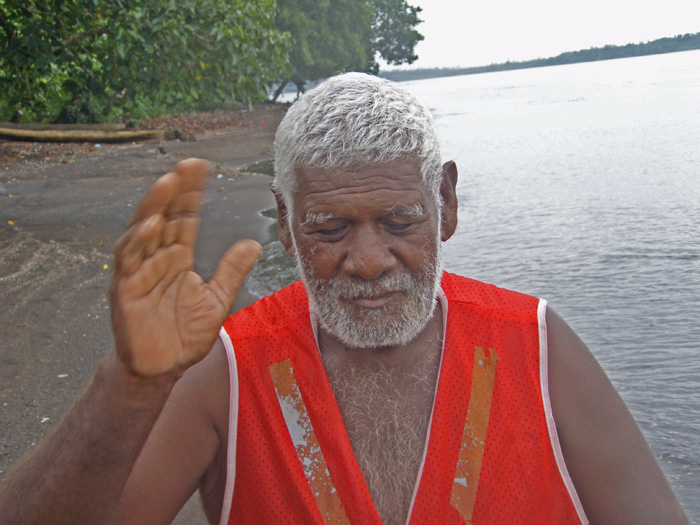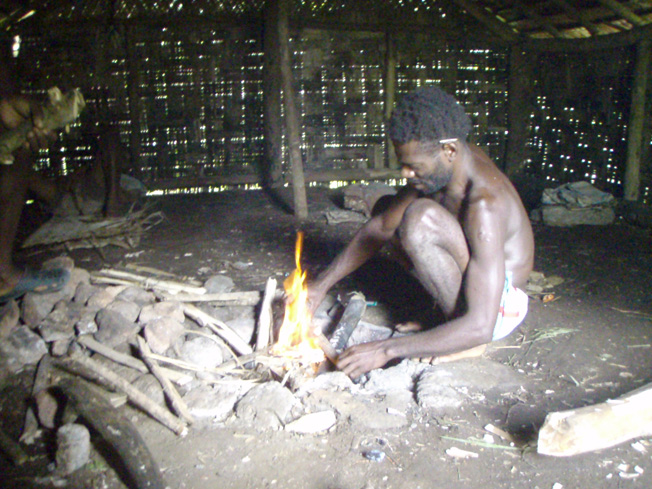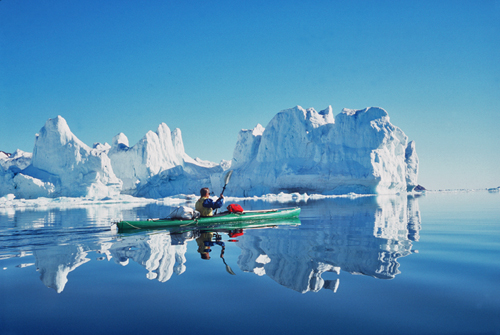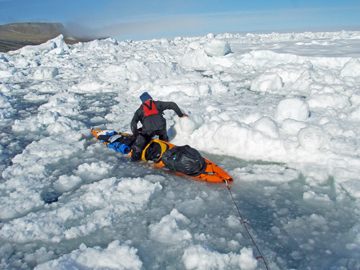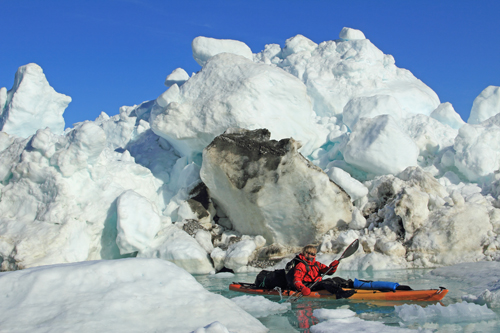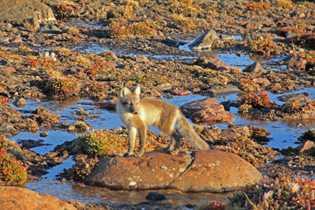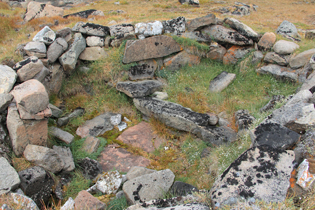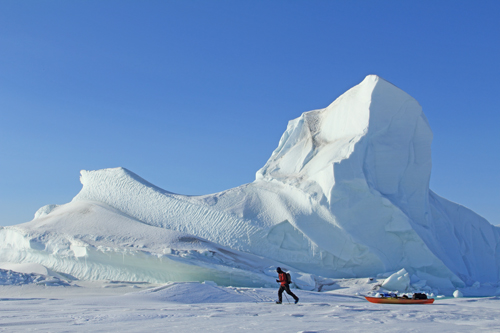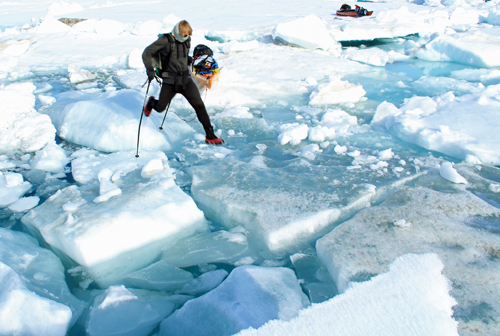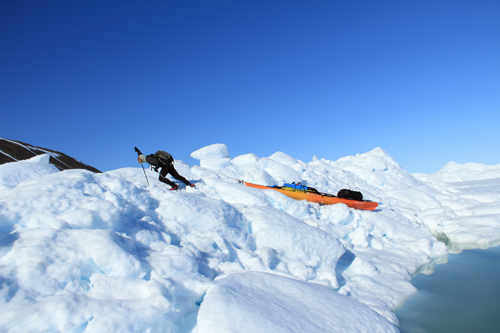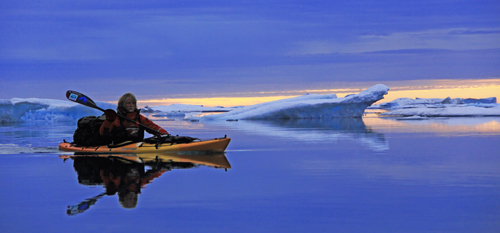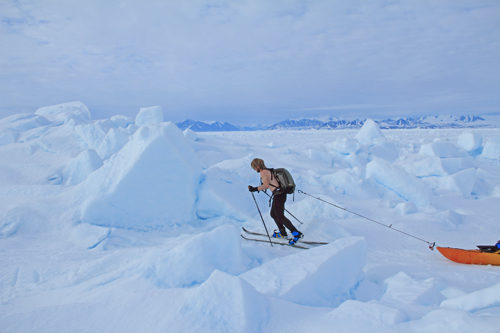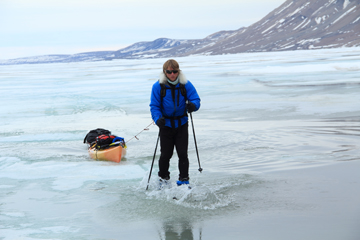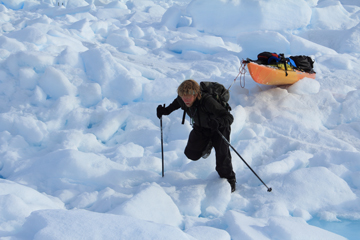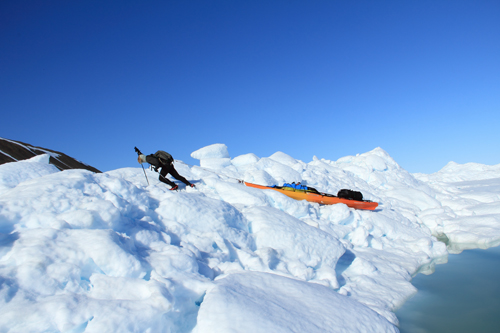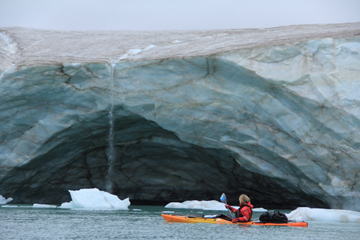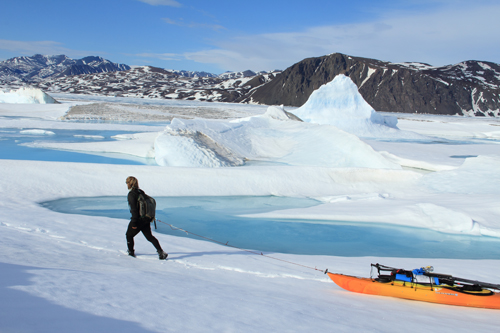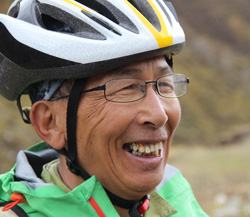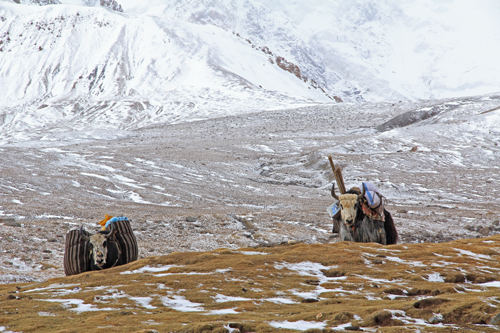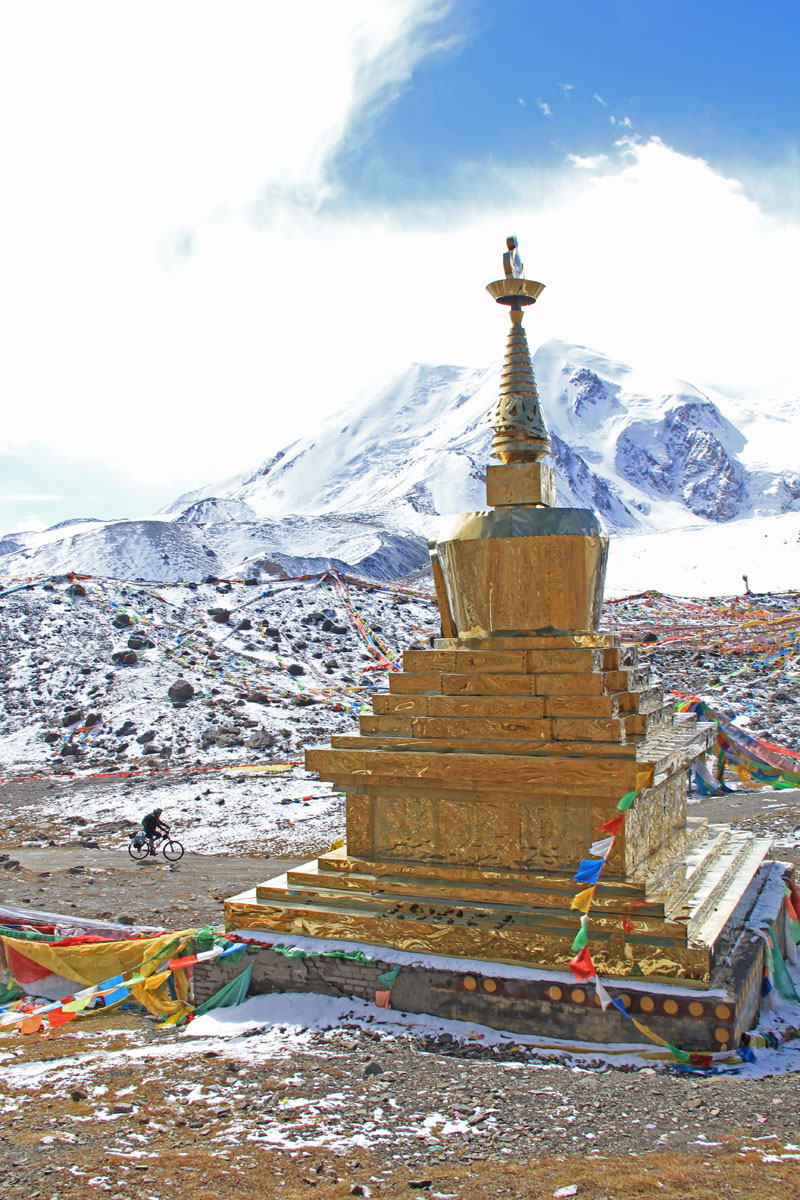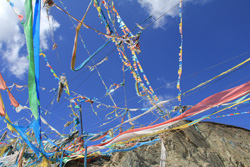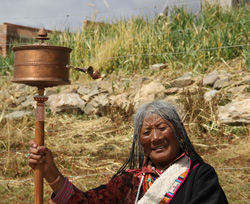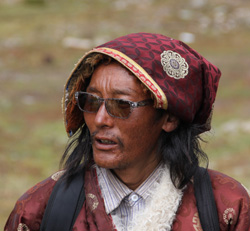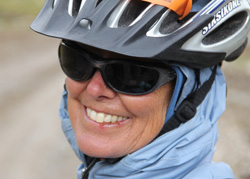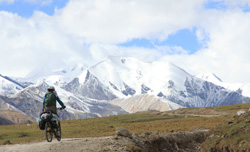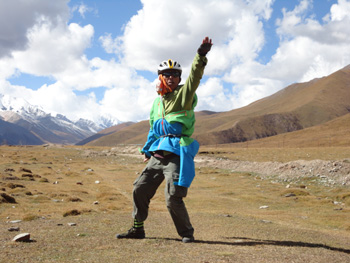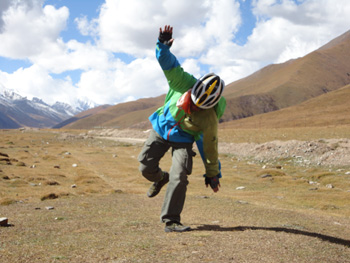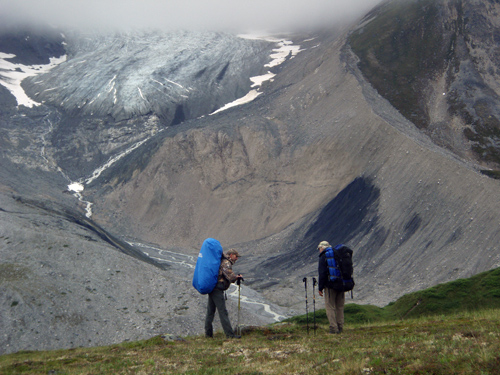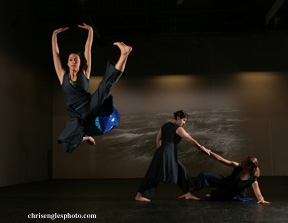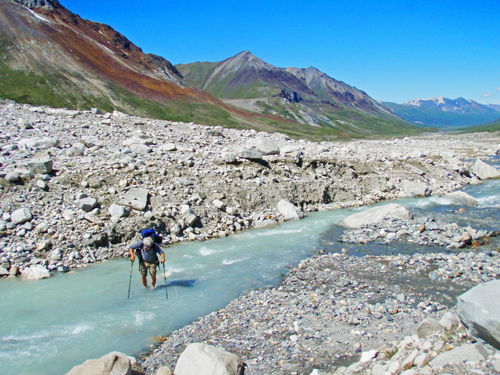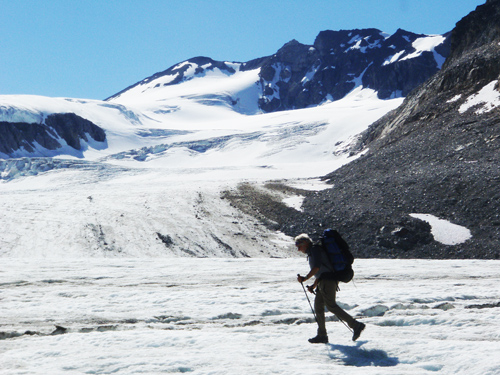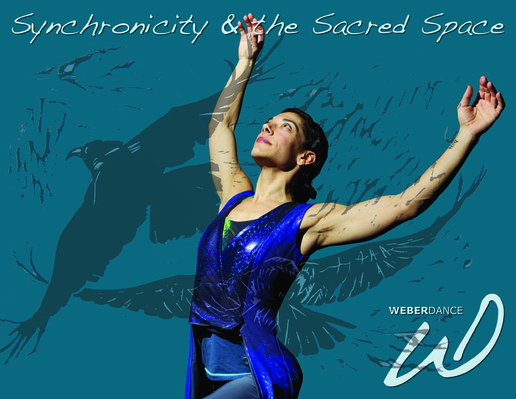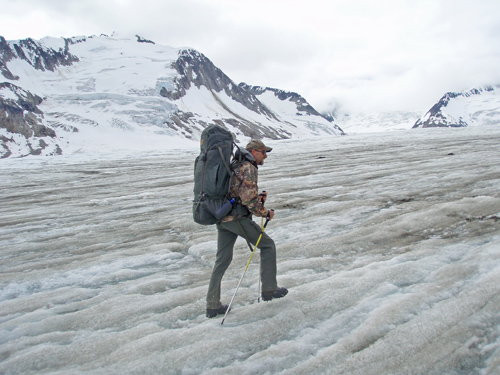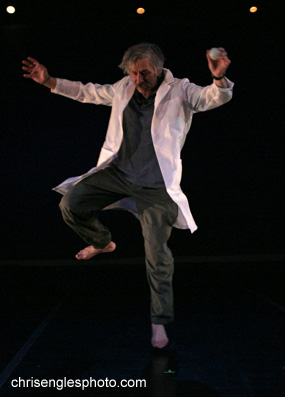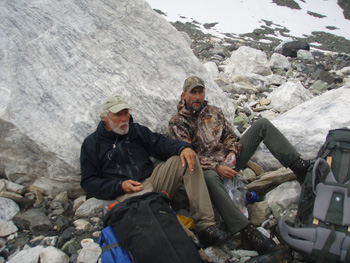Crocodiles and Ice
A Journey into Deep WilD
Crocodiles and Ice is a scientist/adventurer's journey into a Consciousness Revolution based on a deep, reciprocal communication with the Earth. The book highlights my National Geographic award winning polar expedition circumnavigating Ellesmere Island, as well as other, lesser known passages. But, more critically, I tell the story of my lifelong journey from suburban Connecticut into a passion for Deep Wild, an ancient passage, repeated — in one form or another — countless times, and ignored just as often.
I invite my readers to listen to our Stone-Age ancestors, the poets of the '60s, a wolf that lingers, a Siberian shaman, a Chinese bicycle nomad, a lonely Tlingit warrior laying down to die in a storm, and the landscapes themselves. Because beyond the wondrous and seductive opulence of our oil-soaked, internet-crazed, consumer-oriented society, there lies a glorious and sustainable lifestyle that is based on Deep Wild as a foundation of solace, sanity, compassion, and hope.
Professional Praise
I believe that this book will appeal to the broadest possible range of audiences, so I asked a Nobel-Prize winning scientist and an extreme alpinist to write my endorsements:
“Why explore? Why expose oneself to undue hardship? These questions are at the root of human existence. In an age when adventure is a sales tool Jon Turk looks into the meaning of wild places. How have these sacred places transformed the individual and society? With first-hand experience ranging from the tropics to the arctic Jon Turk shares the importance of finding the wild in our daily lives. An important read as our society collides headlong into an over-subscribed world.”
“Jon Turk laments the separation from the natural world that has been imposed by the day-to-day realities of the modern urbanized world. He takes us on his personal journeys to Earth’s remote places where one becomes embedded in the natural world as experienced by our ancestors. It is in essence a journey back from the Anthropocene to the Holocene and Pleistocene, achieved not by turning the clock backward, but rather by finding places on Earth where the clock has been ticking more slowly. Not many of us would have such innate curiosity, courage or stamina.”
“I don’t know of any other committed explorer who approaches the world and its inhabitants like Jon Turk. His journeys and encounters embody a unique combination of physical audacity, deep humility, and extraordinary trust in what comes - the ingredients of wisdom, and of real adventure.”
Table of Contents
Crocodiles and Ice is a memoir, a classic narrative where the central character (Me) takes a physical and emotional journey, struggling to find a sane and compassionate home in a world that initially doesn't make sense. And then it all makes sense. Because there is a path, or many paths, that make sense. The journey could take place anywhere: in a prison cell, or a vegetable garden. In my case, it takes place on a world stage, in a brief confinement in a prison in Jordon, and in much longer journeys on oceans, mountains, and icefields.
Chapter 1: From a Prison in Jordan to the Jaws of a Crocodile
Chapter 2: Circumnavigation of Ellesmere Island: A Wolf that Lingers
This expedition was featured on the Front Page of the New York Times (Read the article)
Chapter 3: Bike Ride to the Dalai Lama’s Birthplace
Chapter 4: Long Ago Person Found: On a Glacier and in the City
From Crocodiles and Ice
"The iceberg drifted lazily in the current, surrounded by a phalanx of smaller floes and basketball-sized bergy bits, compressed into a daiquiri-thick slurry. Then, as if the Himalayan Mountains were rising from the sea, the iceberg slammed into the cliff, stalled, shuttered, cracked with a loud groan, and smeared vertically against solid rock.
Boomer and I were trapped."





